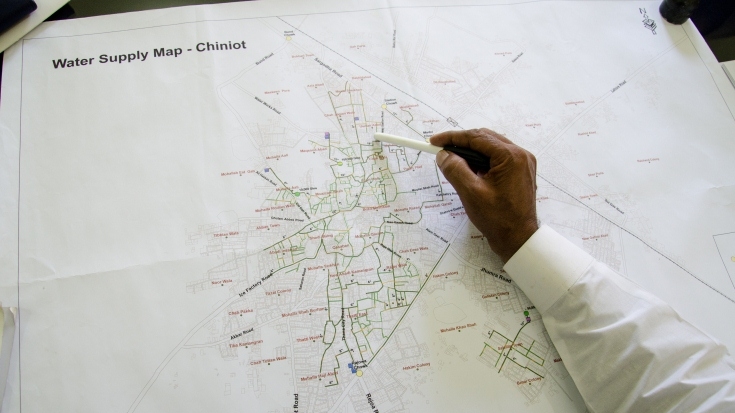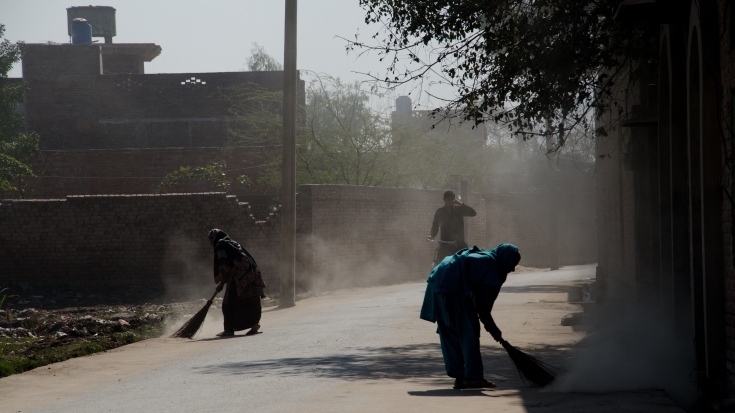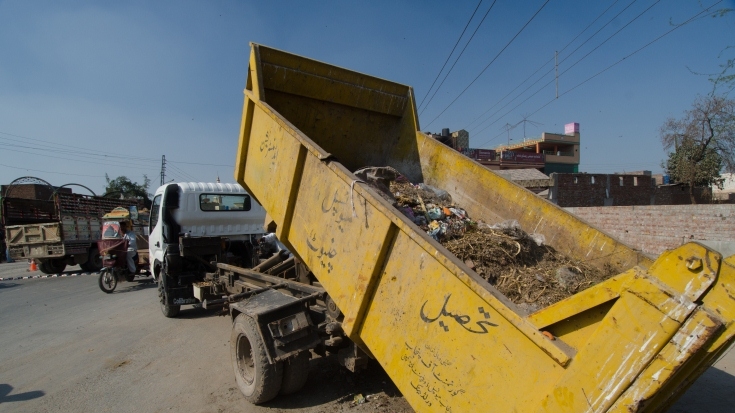Each town and city can contribute to provincial and national development if urban planning and civic amenities are provided and maintained in partnership with citizens
By 2030, 315 million people are expected to be added to urban areas in South Asia. Pakistan will face some of the fastest urban growth, outpacing other countries in the region. If properly managed, urbanization can contribute immensely to the country’s economic development and progress. The province of Punjab recognizes the potential role of each city in the growth of the region, and is endeavoring to provide adequate and reliable urban services through local governments.
Chiniot, in central Punjab, known for its intricate furniture and artisans, had a population of 172,522 in 1998, when the last census was held. Today, it is one of the fastest developing urban centers in the province. With a rapidly growing population, Chiniot required strong urban planning for infrastructure improvement. This was made possible by supporting the local government - the Tehsil Municipal Administration (TMA) of Chiniot under Punjab Municipal Service Improvement Project (PMSIP), supported by the World Bank.
To plan for its urban needs, Chiniot required a base map, land use map, zoning map, and municipal services’ maps to facilitate yearly and long term development plans. Under PMSIP’s Institutional Development component, detailed information to assist in urban planning and infrastructure development was gathered through developing Geographic Information System-based maps. According to Tehsil Officer, Planning, Mr. Zaheer Abbas, “A number of maps have been prepared and are being regularly updated. Now we have guide maps on land use, roads, sewerage, and water supply networks that help us in planning and development of the city. We also received training for updating the information on a regular basis. These maps are really helpful in improving services in Chiniot.”
The project also helped rehabilitate and improve roads. A 700-meter long stretch of road between the busy Ice Factory to Slaughter House section was restored. According to Zahoor Ahmad, who runs a wood carving showroom at Ice Factory road, “It was not a road, it was a narrow alley, with heaps of garbage at every corner and was not even paved. At times it used to feel that no drainage system has ever been laid. In the monsoon season, we had to walk in knee-deep water. The road was restored a year and a half ago and because of the easy access, I now have many new clients. I can definitely say that my business has grown immensely due to easy and clean access to my showroom.”



